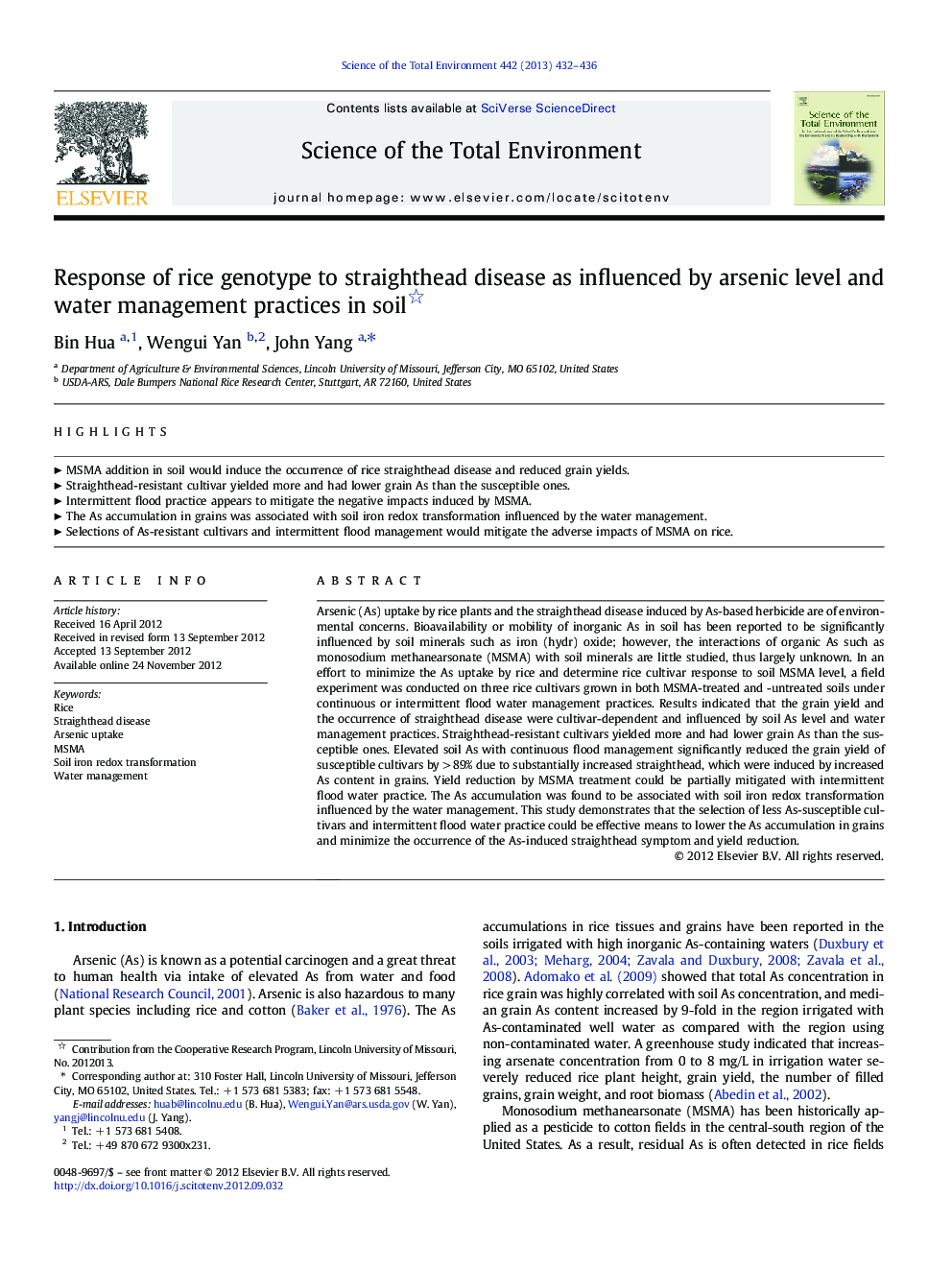| Article ID | Journal | Published Year | Pages | File Type |
|---|---|---|---|---|
| 4429015 | Science of The Total Environment | 2013 | 5 Pages |
Arsenic (As) uptake by rice plants and the straighthead disease induced by As-based herbicide are of environmental concerns. Bioavailability or mobility of inorganic As in soil has been reported to be significantly influenced by soil minerals such as iron (hydr) oxide; however, the interactions of organic As such as monosodium methanearsonate (MSMA) with soil minerals are little studied, thus largely unknown. In an effort to minimize the As uptake by rice and determine rice cultivar response to soil MSMA level, a field experiment was conducted on three rice cultivars grown in both MSMA-treated and -untreated soils under continuous or intermittent flood water management practices. Results indicated that the grain yield and the occurrence of straighthead disease were cultivar-dependent and influenced by soil As level and water management practices. Straighthead-resistant cultivars yielded more and had lower grain As than the susceptible ones. Elevated soil As with continuous flood management significantly reduced the grain yield of susceptible cultivars by > 89% due to substantially increased straighthead, which were induced by increased As content in grains. Yield reduction by MSMA treatment could be partially mitigated with intermittent flood water practice. The As accumulation was found to be associated with soil iron redox transformation influenced by the water management. This study demonstrates that the selection of less As-susceptible cultivars and intermittent flood water practice could be effective means to lower the As accumulation in grains and minimize the occurrence of the As-induced straighthead symptom and yield reduction.
► MSMA addition in soil would induce the occurrence of rice straighthead disease and reduced grain yields. ► Straighthead-resistant cultivar yielded more and had lower grain As than the susceptible ones. ► Intermittent flood practice appears to mitigate the negative impacts induced by MSMA. ► The As accumulation in grains was associated with soil iron redox transformation influenced by the water management. ► Selections of As-resistant cultivars and intermittent flood management would mitigate the adverse impacts of MSMA on rice.
